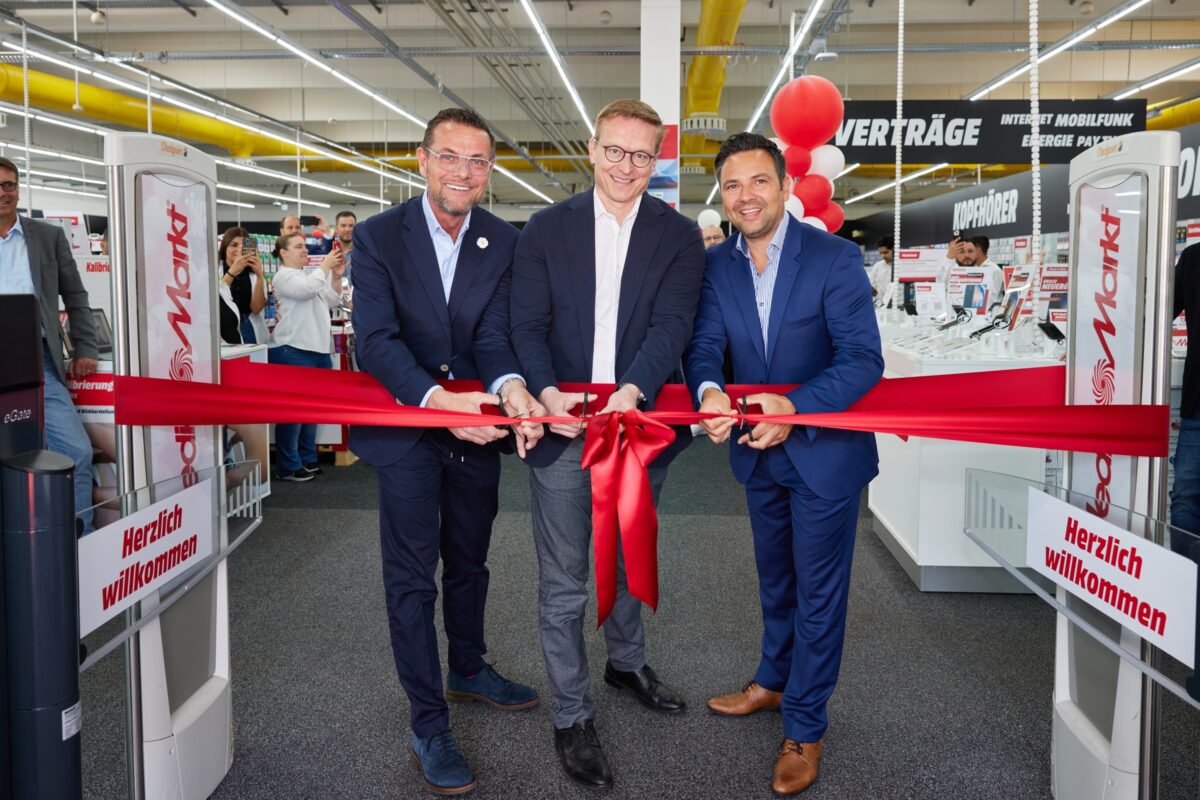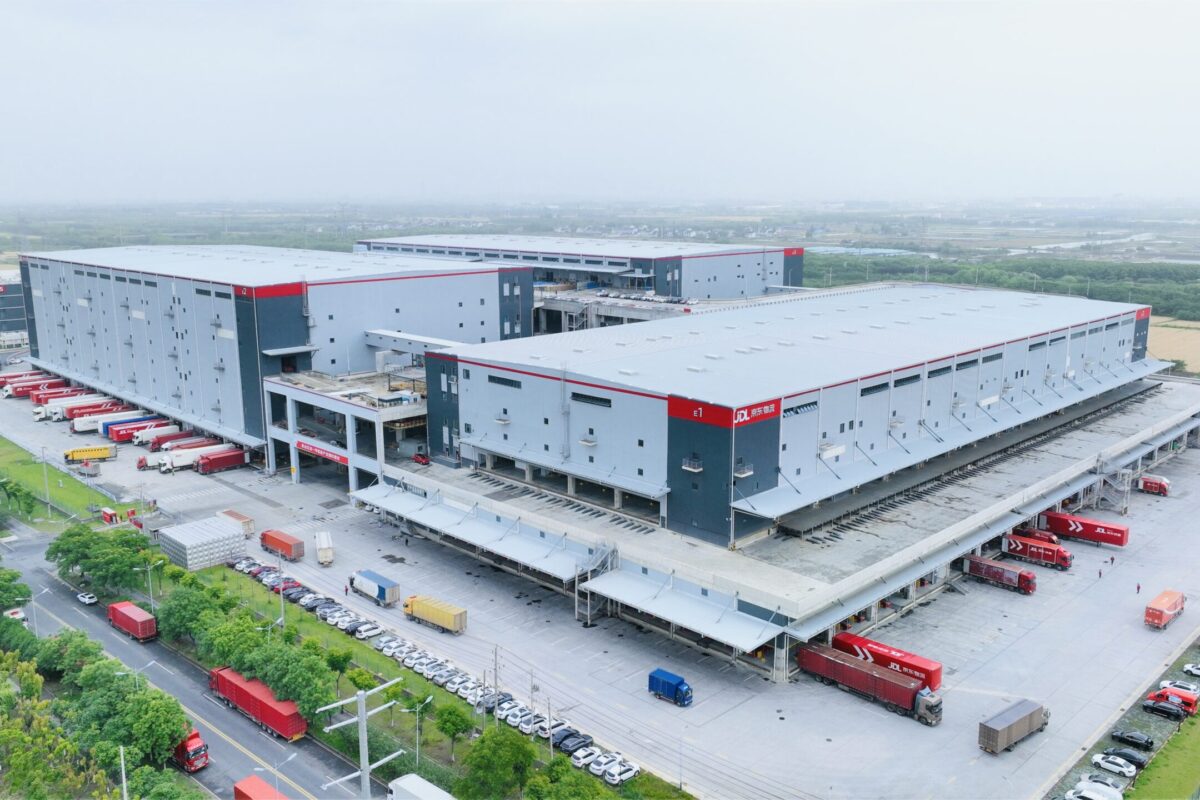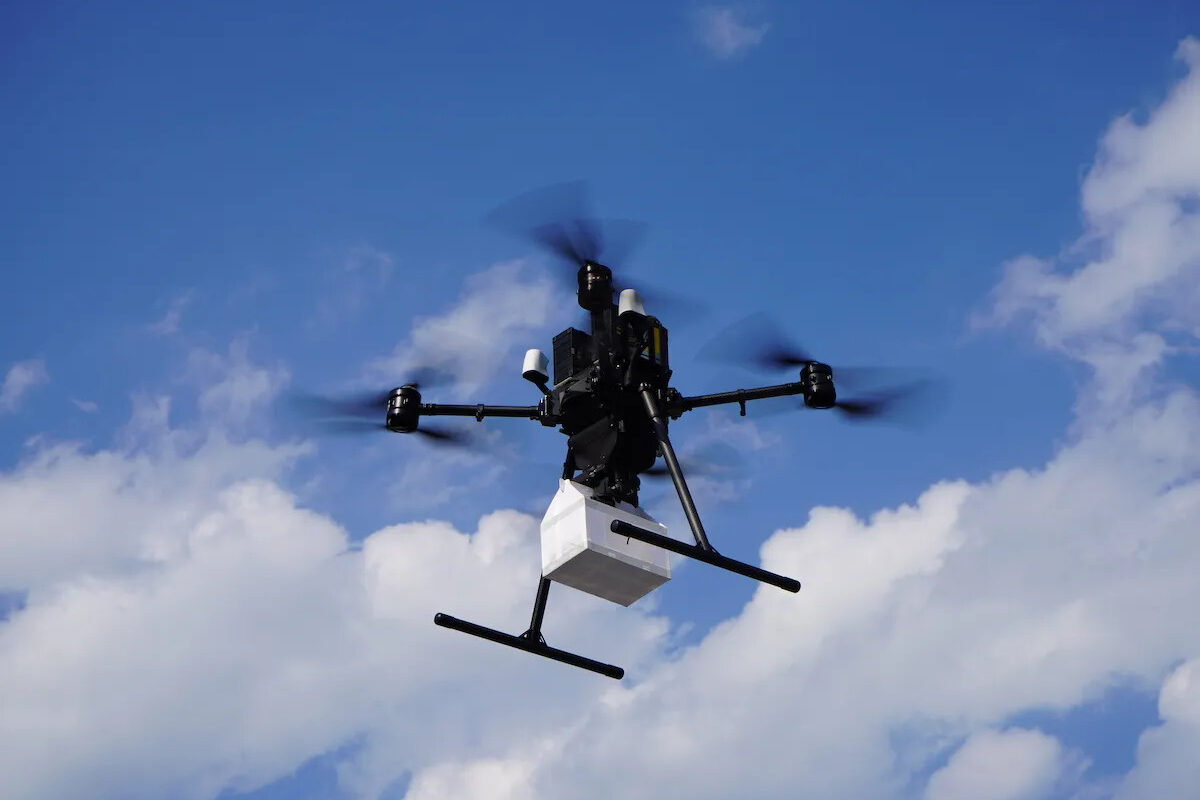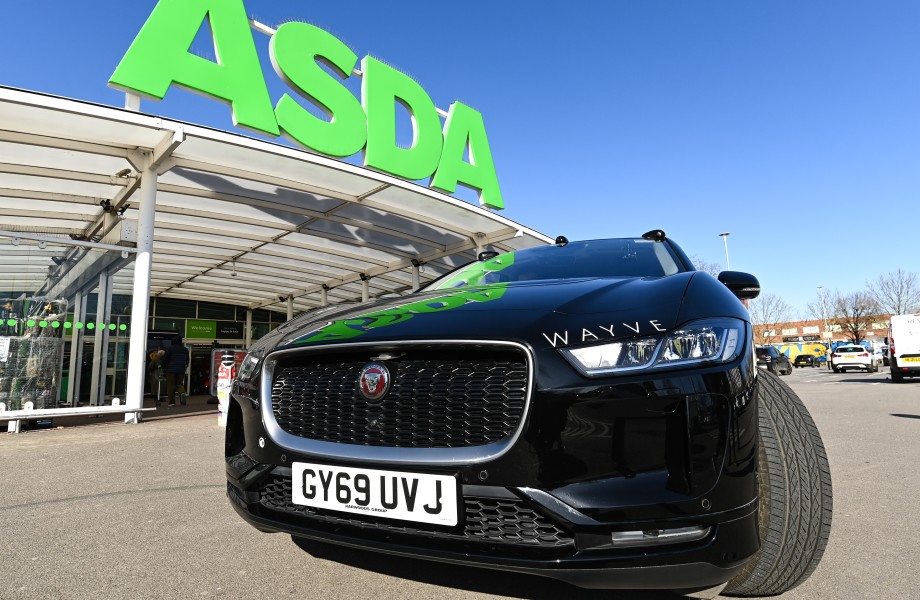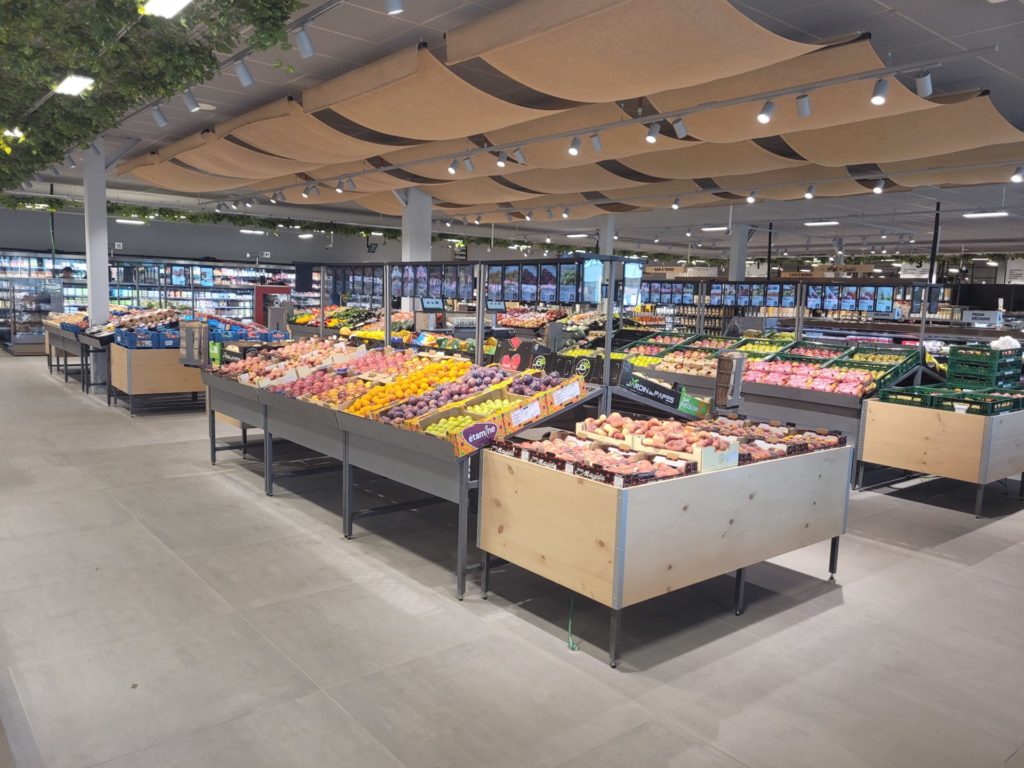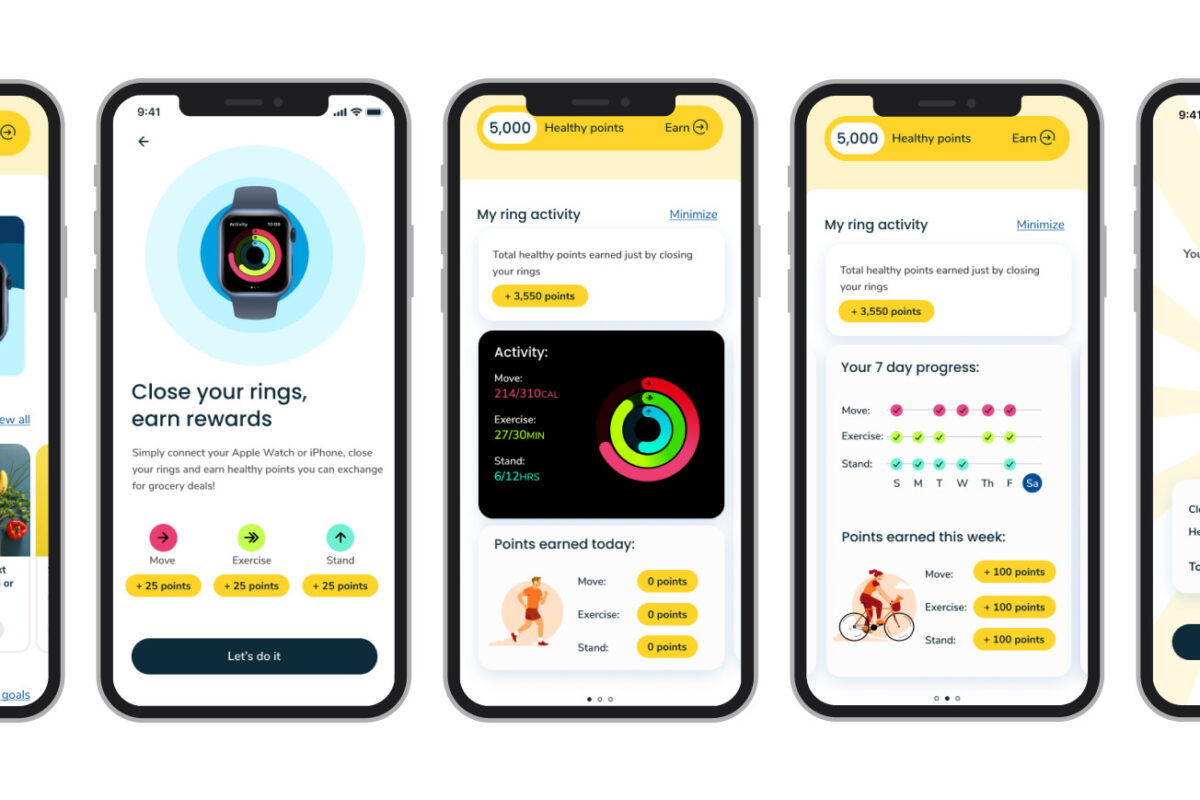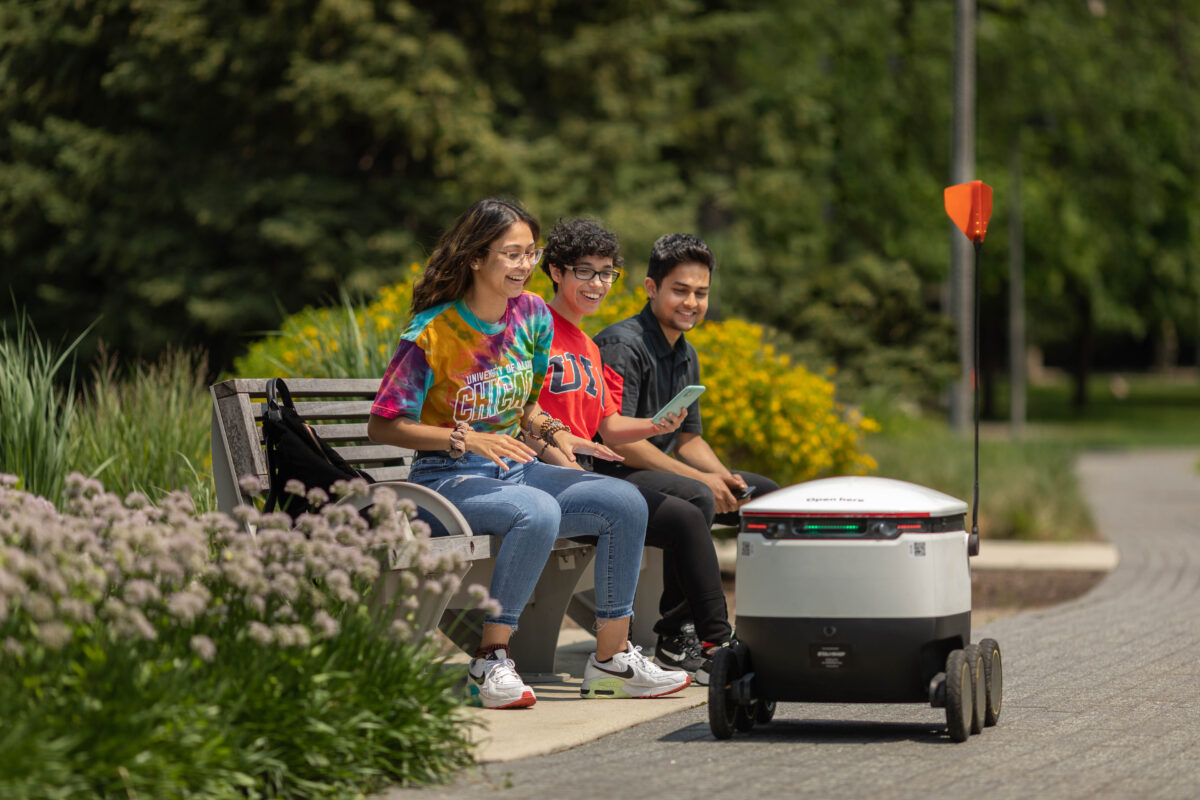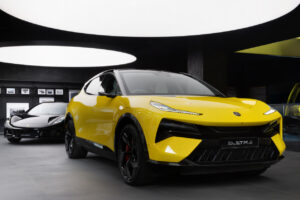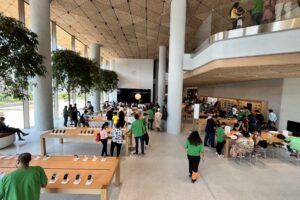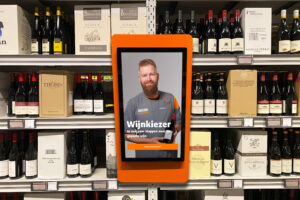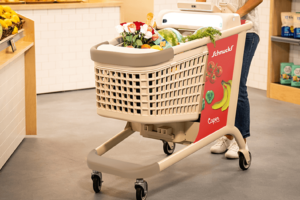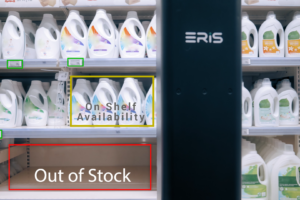Get groceries sent right to your front door with just a few clicks: See what’s behind the emerging trend
by Elisa Wendorf (exclusively for EuroShop.mag)
“Supermarkets hate us” (German: Supermärkte hassen diesen Trick) – that’s the advertising slogan of the Berlin-based startup Gorillas. Founded in May 2020, the bike delivery service – along with providers like Flink and getir – is one of several courier services that promise to speedily deliver online grocery orders to the customer’s doorstep in as little as ten minutes. It is a convenient alternative to doing the shopping yourself at the supermarket. Demand for food delivery has soared during the COVID-19 crisis. Courier services seem to experience a boom – but how sustainable are these business models? We took a closer look at the providers mentioned above.
Delivery areas
Gorillas currently operates in 21 German cities and selected locations in the Netherlands, Great Britain, Italy, and France. Flink riders service 18 cities across Germany, the Netherlands and France. Getir, the Turkish rapid delivery service entered the German market last June. So far, riders on purple electric scooters only make deliveries in the Berlin area. However, the company plans to expand to other major cities including Stuttgart, Cologne and Munich in the near future.
How do the delivery services work?
Customers order groceries via an app and make cashless payments using a credit card (in the case of Gorillas, Flink and getir). Gorillas and Flink also accept payment through PayPal. None of the three delivery services accept debits card and cash payments. Getir riders deliver Monday to Saturday from 9:00 a.m. to 11:00 p.m., while Flink riders mount their bikes an hour earlier. Gorillas has the biggest delivery window with shifts starting at 7:30 a.m. On Fridays and Saturdays, riders even make deliveries until 11:45 p.m. Like conventional supermarkets, all three services are “closed” on Sunday.
The product selections include a large variety of convenience goods, groceries, household and drugstore items and pet food. As the header suggests, once customers complete their order, it takes all three courier services less than fifteen minutes – ten minutes to be exact – to deliver the items to your doorstep.
Financing the business model
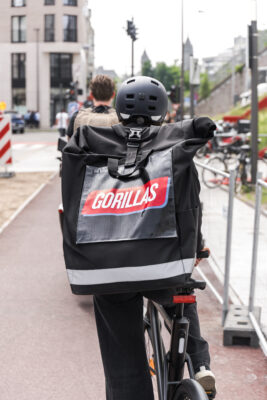
© Gorillas
The services deliver on their promise to offer items “at supermarket prices”. This is made possible by the companies buying directly from manufacturers and leveraging volume discounts. This eliminates the middle person, i.e., other retailers or wholesalers. The companies have decentralized warehouses within the delivery range, which is typically limited to the city center. Suburbs or rural areas are not serviced. Gorillas and Flink customers pay a flat 1.80 euros delivery fee for orders. Flink has a minimum order value of one euro. Getir does not charge delivery fees, but orders must exceed a value of ten euros.
The business model of the delivery services hinges on two key factors: the number of orders and resource utilization, meaning the time riders spend working. If there are not enough orders, fresh foods will spoil in the warehouse, while employees sit idle.
Reviewing the sustainability of the delivery services
The bikes of Gorillas and Flink appear to contribute to a clean environment, but let’s take a closer look at the companies as it pertains to sustainability. The riders’ backpacks seem to be everywhere at the moment, especially since they are bigger than conventional bags – though none of them have enough space to hold one week of groceries. During the ordering process, customers are made aware of these quantity limits.
The electronic scooters use electricity on their delivery routes. Cooling and warehousing likewise consume resources.
Long-term profit and growth of the business models
Warehouse space and storage capacity might present a challenge in the future: The number of storage facilities is already very limited. From a logistics perspective, service providers eventually will have to come up with creative ideas to solve this issue.
When it comes to public perception, Gorillas also has some catching up to do. The media has criticized poor working conditions and reported multiple worker strikes and protests, which has done extensive damage to the brand image of the delivery service.
From a commercial perspective, the formerly hyped startups must also worry about future earning potential. Flink already hedged its bets in June and sold shares to the REWE supermarket chain. The latter now exclusively supplies Flink with goods and relies on the startup’s rapid delivery solution besides REWE’s own delivery service.
Things are somewhat different for Gorillas: The fast-growing delivery service is now looking for new investors. The US’s largest food delivery company DoorDash is one potential candidate since the company currently has no presence in Europe.

© PantherMedia/xload
It is impossible to say at this stage whether and how these delivery services will prevail in the future. The increasing number of providers plan to expand thanks to more warehouses, which enables them to shorten delivery routes and cut costs and staff. However, there are limits to profit maximization as it pertains to this model. Riders and their backpacks don’t offer enough space to accommodate large orders, which puts a damper on maximization efforts. Delivery times likewise offer limited potential. In the long run, companies must contemplate alternative delivery methods and consider multiple drivers or larger modes of transportation, for example. But whether this is ultimately profitable for the companies is another issue.
Right now, it looks like the business model for on-demand delivery is picking up speed. Traffic plays a key role in this setting. “Driving with foresight” on the part of the company has the right of way. For now, all lights are solid green. Before they turn red, it is up to the service providers to take a different route and avoid traffic jams and detours on the road to success.







